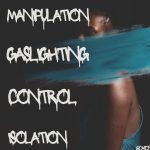Manipulation in abusive relationships is a deeply personal and painful experience. It often begins subtly, making it hard for the person being manipulated to recognize what’s happening. The abuser might start by undermining their partner’s confidence, making them doubt their own thoughts, feelings, and perceptions. This can happen through gaslighting, where the abuser convinces their partner that their memory or sense of reality is flawed.
Over time, the manipulation can become more overt and damaging. Abusers often use guilt, shame, and fear to control their partners. They might isolate their partner from friends and family, creating a dependency that makes it even harder for the victim to leave. This isolation is both physical and emotional, cutting off the support networks that the victim would normally turn to for help.
The effects of manipulation are profound. Victims often feel trapped and powerless, believing they have no options. Their self-esteem erodes, and they may blame themselves for the abuse. This emotional toll can lead to anxiety, depression, and a sense of hopelessness.
Despite the darkness of these situations, there is hope. Recognizing the signs of manipulation is the first step towards breaking free. Support from friends, family, and professional counselors can make a significant difference. It’s crucial for victims to understand that they are not alone and that the abuse is not their fault. With the right help and support, it is possible to rebuild confidence and reclaim a sense of self-worth.




0 Comments